Traffic deaths up 50% in Milwaukee; most victims are Black

Traffic deaths up 50 percent in Milwaukee; most victims are Black
Nearly two years after Milwaukee's mayor appointed a task force to address reckless driving, city leaders still can’t say what’s driving the increase in aggressive and dangerous behavior behind the wheel.
MILWAUKEE - In a year dominated by the COVID-19 pandemic, calls for police reform and a presidential election, you might not have noticed reckless driving deaths are surging again.
“It’s crazy,” said a man waiting for the bus near 27th and Center Streets. “They’re just nuts.”
Nearly two years after Milwaukee Mayor Tom Barrett appointed a task force to address reckless driving, and three months after that task force issued a long list of recommendations, city leaders still can’t say what’s driving the increase in aggressive and dangerous behavior behind the wheel.
Wisconsin law defines reckless driving as “negligent operation” of a vehicle that endangers of the safety of others, but defining it more specifically than that is a bit like defining obscenity.
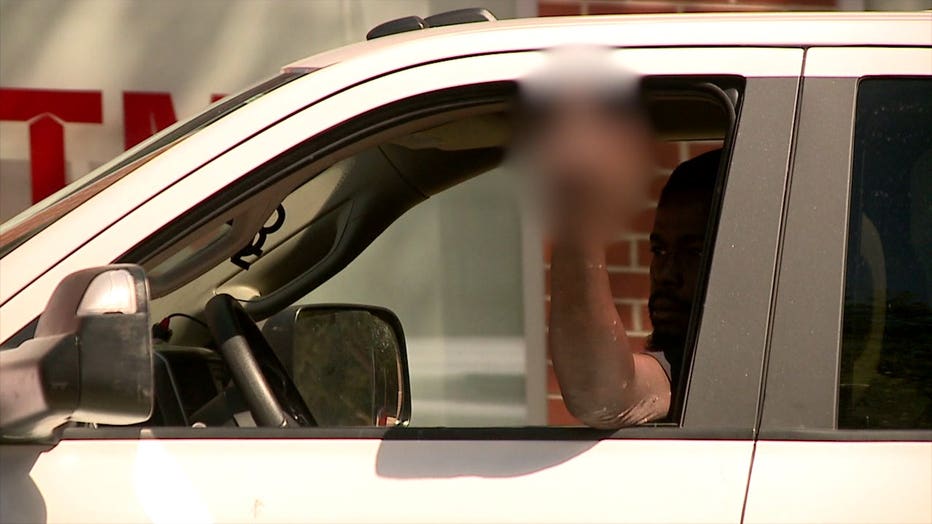
“It’s one of those things, when you see it, you know it," said Milwaukee Alderman Michael Murphy.
“Of course, it includes speeding,” said Nichole Yunk Todd, a public member of the city’s Reckless Driving Task Force.
“Making turns in front of vehicles,” Murphy added.
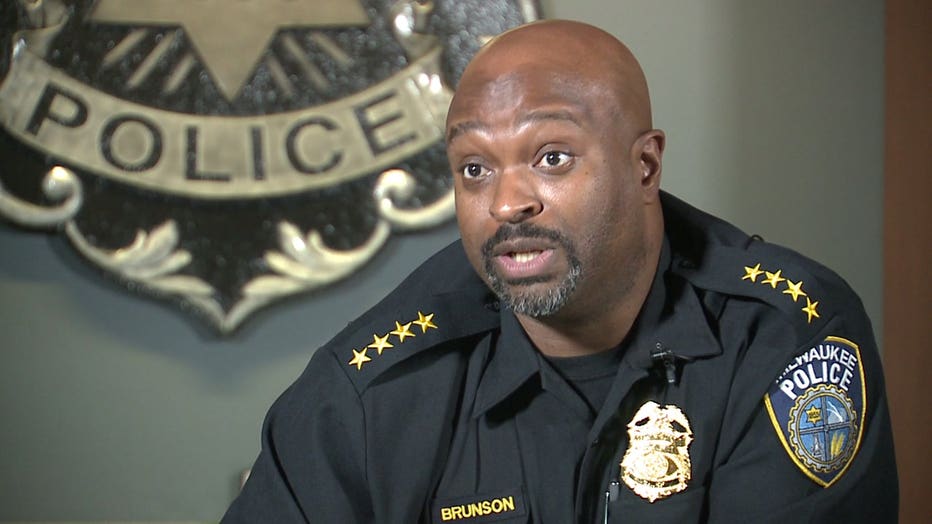
Acting Chief Michael Brunson
“Speeding, going through a red light, weaving in and out of traffic,” offered Michael Brunson, acting Milwaukee police chief. “It’s when it’s a combination of those behaviors.”
After 25 years on the force, Brunson says he's never seen driving behavior as bad as has been the past five years.
“The reckless driving in this city has got to an untenable level,” he said.
“It's frightening to be on our streets right now,” said Mike Amsden, Milwaukee Department of Public Works.
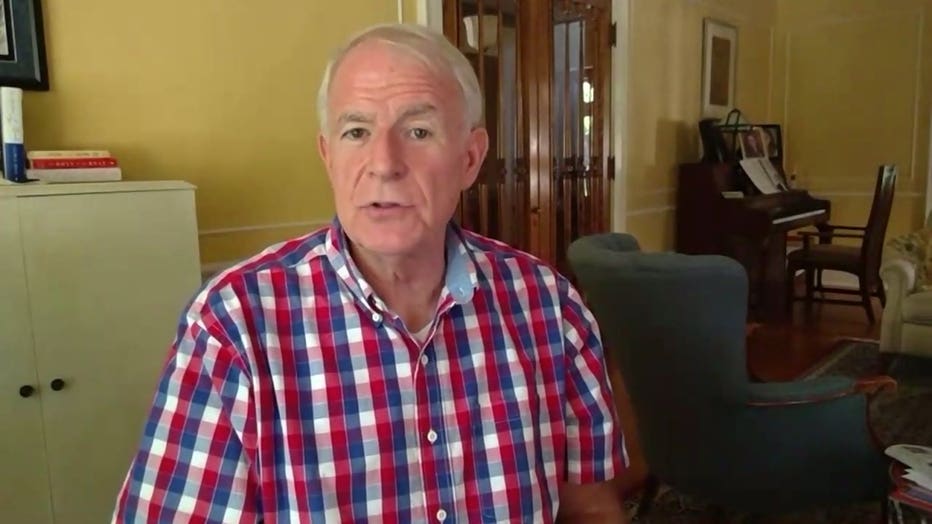
Milwaukee Mayor Tom Barrett
“I can guarantee you, your viewers are irritated,” said Milwaukee Mayor Tom Barrett. “I'm irritated."
For years, city leaders have talked about curbing aggressive driving, but so far, that talk has produced little measurable action.
In the fall of 2017, the mayor said, “We have to make sure there are consequences.”
That same year, then-Milwaukee Police Chief Ed Flynn promised, “We’re going to be writing a lot of tickets.”
In 2018, Alderman Khalif Rainey declared, “This is something we can change,” while Alderman Mark Borkowski added, “We’re going to have to start doing bold things.”
Last year, then-Assistant Police Chief Michael Brunson called the focus on reckless driving a “collective effort,” while Alderman Bob Donovan joined Barrett in declaring it a “call to action.”
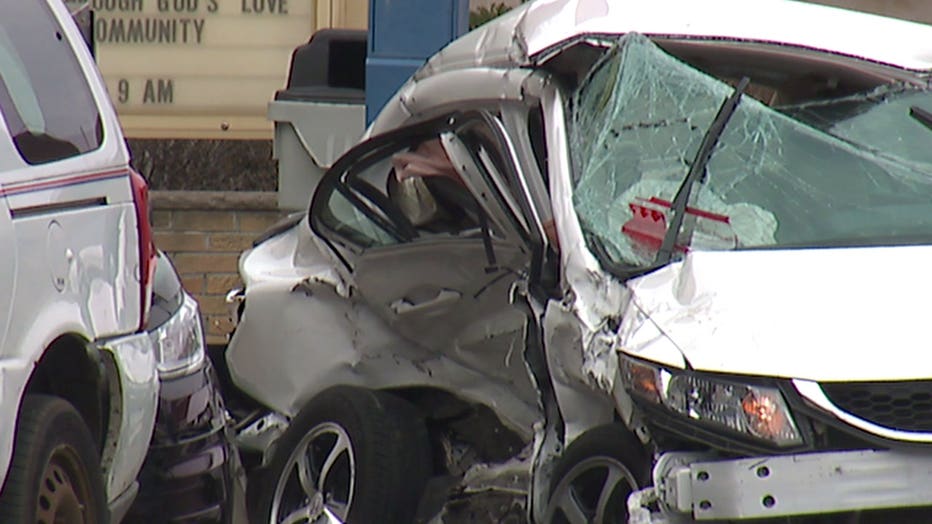
But deep into 2020, a year marked by a springtime slowdown in driving due to the governor’s COVID-19 "Safer at Home" order, reckless driving only appears to be getting worse.
A map of injury-causing accidents produced by the FOX6 Investigators shows a blanket of red dots all over the city, but particular concentrations at major intersections. One of the worst – the convergence of 27th Street, Center Street and Fond du Lac Avenue.
On a pair of summer afternoons, our hidden cameras caught drivers repeatedly blowing red lights, passing other cars on shoulders and in bike lanes and speeding through the intersection. Many of those vehicles had no license plates at all. One car rolled through a light three full seconds after it turned red, right in front of a pair of motorcycle squads tending to an earlier crash at the same intersection.
“Some of the conduct that we see out there is brazen,” said Brunson.
“It is just individuals who decide for whatever reason they're going to flaunt the law,” said Barrett.
If you thought a pandemic would pump the brakes on traffic deaths, think again.
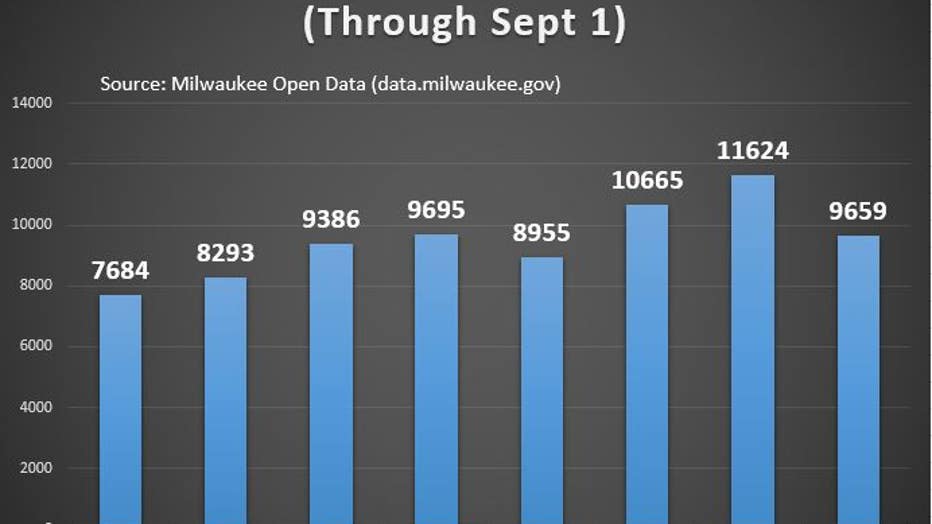
Crashes in Milwaukee 2013-2020
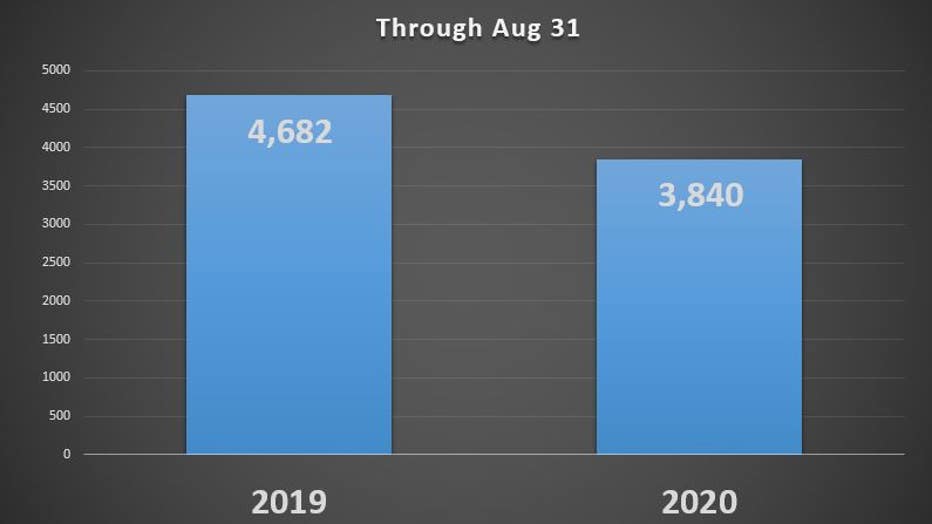
Injuries from crashes down in Milwaukee in 2020
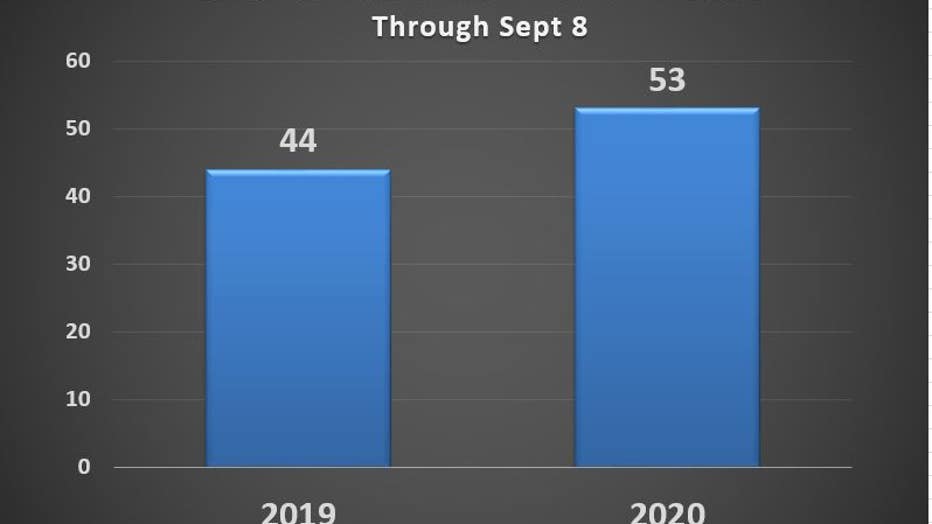
Traffic fatalities up in Milwaukee in 2020
So far this year crashes in Milwaukee are down 17%. Injuries are down 22%. But traffic deaths are way up. Through Sept. 14, 51 people have died in traffic accidents in the city. That’s up more than 50% (33) from the same time a year ago.
And most of those deaths involve victims who are Black.
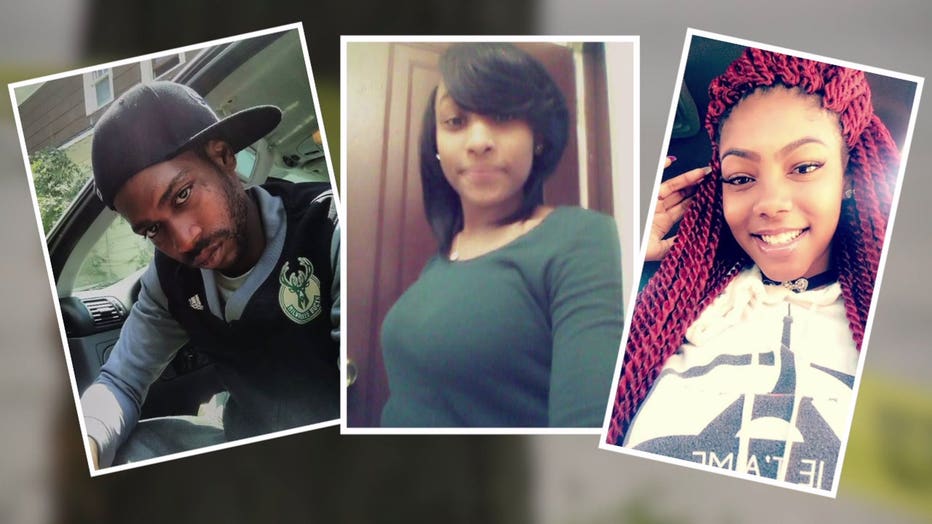
No one knows that better than three mothers – Doris Cole, Carolyn Hall and Lecretia Lewis -- who’ve all lost children to reckless drivers.
“My daughter's just a little Black girl from Milwaukee,” Lewis said. “So nobody really cared that much."
Statewide, traffic deaths have been declining for years. But a study by the Wisconsin Policy Forum finds since 2013 the fatality rate for Black Wisconsinites has more than doubled, leaving grief-stricking families to pick up the pieces.
Carolyn Hall’s daughter, Rhode Molina, was killed by a wrong-way driver on I-43.
“He affected his family. His children. Me. My family,” Hall said.
Lacretia Lewis’ daughter, Zion Lewis, was the passenger in a car that crashed at more than 90 miles per hour in a 35 mile per hour zone.
“We were in the process of buying microwaves and refrigerators so she could get ready to go to college and take her stuff with her," Lewis said, her voice choking with emotion.
Doris Cole’s son was ejected from a car whose driver was doing "donuts" and then left him behind to die.
“They gonna have to toughen up on the law,” Cole said.
In January 2019, Mayor Barrett appointed a Reckless Driving Task Force.
“Because I wanted to hear what the residents had to say,” he said.
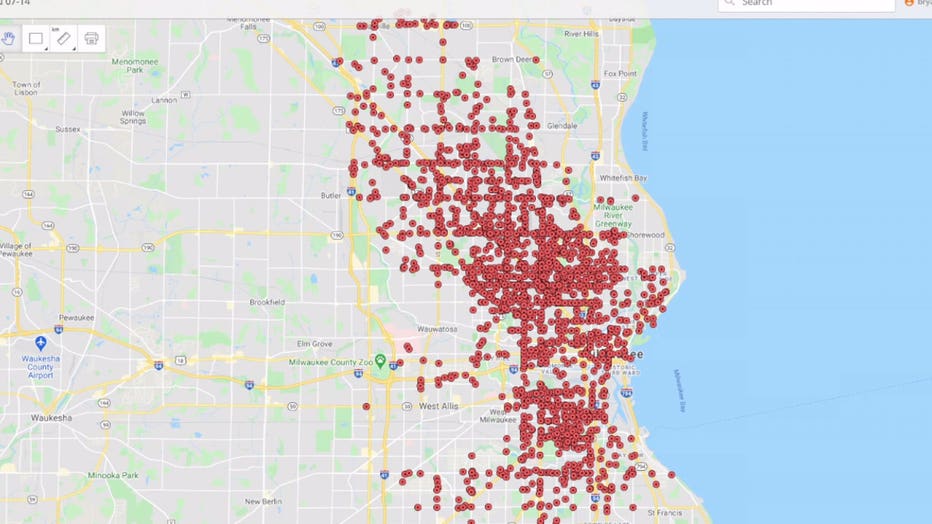
Reckless driving in Milwaukee
In June, the panel issued a series of recommendations, from making public transportation "cool," to creating a safe driving video game.
“Come up with a catchy tagline or slogan, such as Pedestrian Lives Matter,” said Tea Norfolk, legislative analyst for the task force, reading from a list of suggestions submitted to the task force.
In all, the Carjacking and Reckless Driving Task Force made dozens of recommendations to address the problem, with each proposal falling into one of three categories – the so-called three E’s – education, engineering and enforcement.
Trouble is, many of them depend on additional funding, and the mayor says COVID-19 is killing his budget.
“We don’t have the revenue to run the city,” he said.
If funding decisions mean focusing on priorities first, city leaders have yet to identify which of the recommendations are the most important.
“Finding one single answer to solve all the problems is not practical,” Murphy said.
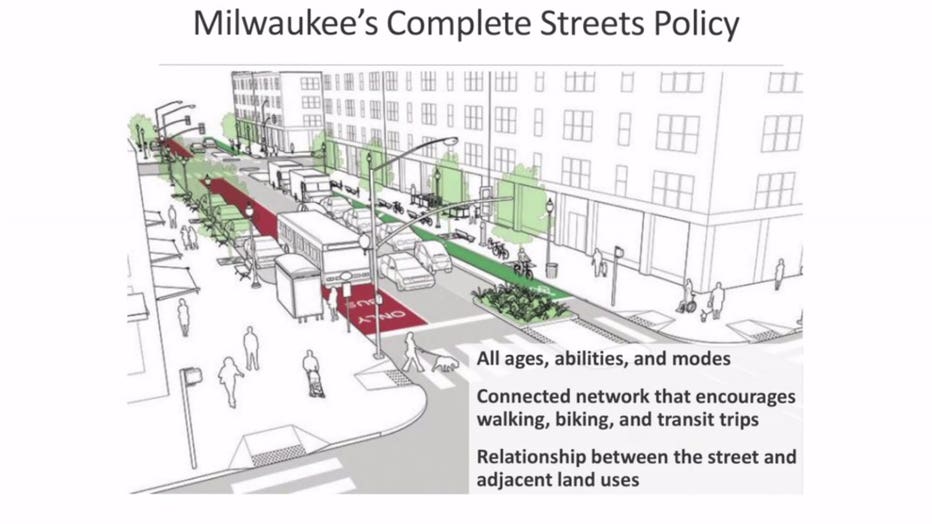
Complete Streets program
The mayor wants a heavy focus on engineering. The city’s Complete Streets program emphasizes the redesigning of streets with narrowed traffic lanes, curb extensions, roundabouts and speed humps.
“That will help us naturally slow the traffic by making it more difficult for people to weave in and out,” Barrett said.
The acting police chief wants more education.
“It has to be instilled in individuals, I believe, at a very young age,” Brunson said.
Carolyn Hall wants tougher enforcement.
“If you keep slapping them on the hand, it’s going to be a continuous thing over and over and over and over again,” she said.
“Enforcement, clearly, is also a part of it,” Barrett said.
Municipal court records show Milwaukee police are writing roughly half the tickets they wrote 10 years ago.
In a July 6 email to FOX6 News, the police department wrote, “It would be impossible for MPD to make any substantive commitments to increasing its role in addressing reckless driving with the threat of significant budget cuts.”
“Is that word 'impossible' too strong?" asked FOX6 Investigator Bryan Polcyn.
“Yeah, I wouldn’t say 'impossible,'” Brunson said. “It's something that we're going to make a fervent effort to address this going forward."
Brunson was not yet the acting chief when the department made that statement. In fact, he was a member of the task force that recommended the stepped up patrols. But, he says, he's also a realist.
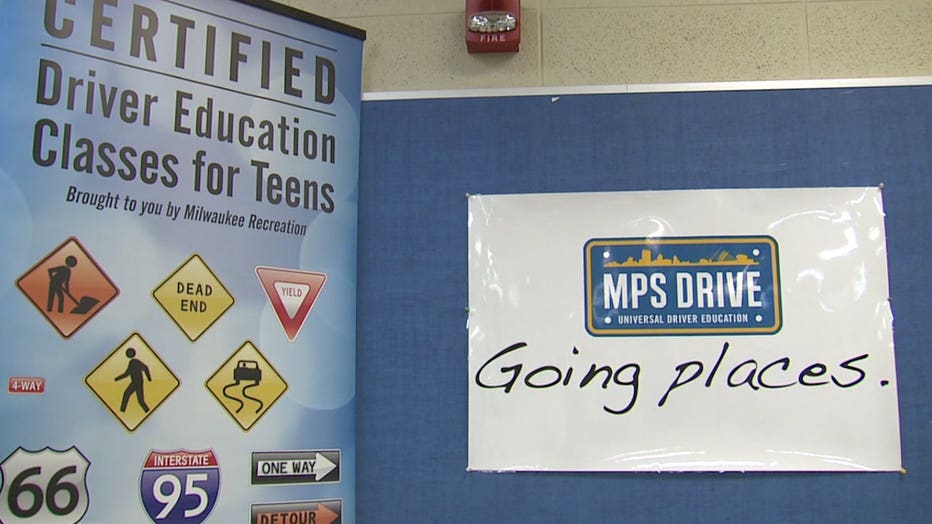
“We have to be creative, and it will be a challenge,” he said.
The mayor says police have been unable to focus their efforts on traffic enforcement for much of 2020.
“It was more difficult in the last several months because of COVID-19, because of the fight for racial justice,” he said.
According to the task force, it's now the mayor's job to turn the long list of proposals into concrete action with measurable results. That includes answering the one question that lies under it all: What are the root causes of reckless driving?
“It’s not just people that are losing control of their vehicles,” said Jeffrey Polenske, commissioner of the Milwaukee Department of Public Works. “It’s people that are choosing to do this."
“By far the most critical part is individual behavior,” the mayor said.
Getting through to those individuals may be the biggest challenge of all.
“Those are conscious decisions. Those aren't accidents!" Lewis said.
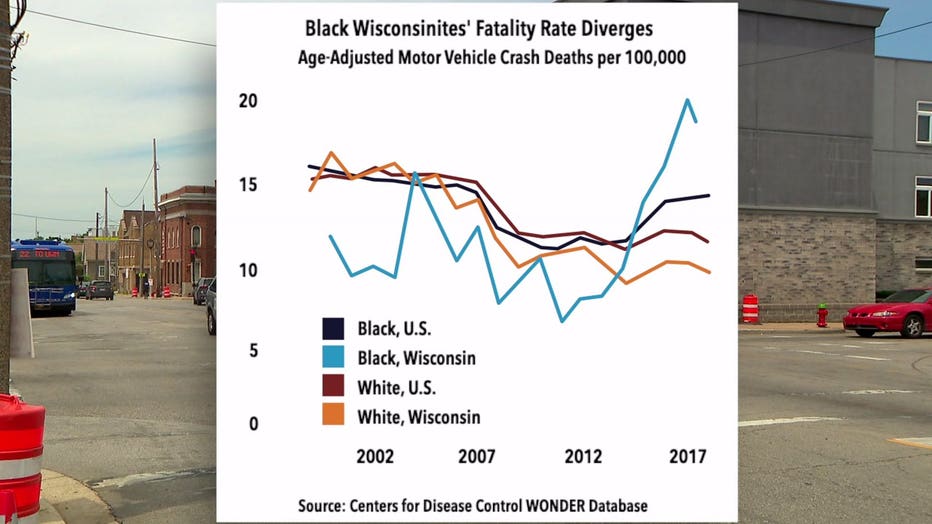
But the grieving mothers who talked to FOX6 say city leaders have to try.
“They’ve got to make people know you are accountable for your actions!” Hall said.
After all, doing nothing would be reckless.
Acting Chief Brunson says previous chiefs have focused traffic enforcement in high-crime areas, leading to a larger number of tickets being issued, but also concerns about discrimination.
Brunson says his strategy will focus on high crash areas, a more targeted approach.
On Wednesday, Sept. 16, the Milwaukee Police Department announced the renewal of its Reckless Driving Reduction Initiative for the third year in a row. It’s a partnership with the Milwaukee County Sheriff's Office and Wisconsin State Patrol that targets speeding, drunk driving and reckless driving in areas known for high crash volumes. Chief Brunson says they expect to use existing funds supplemented with federal grants to pay for the increased patrols.

